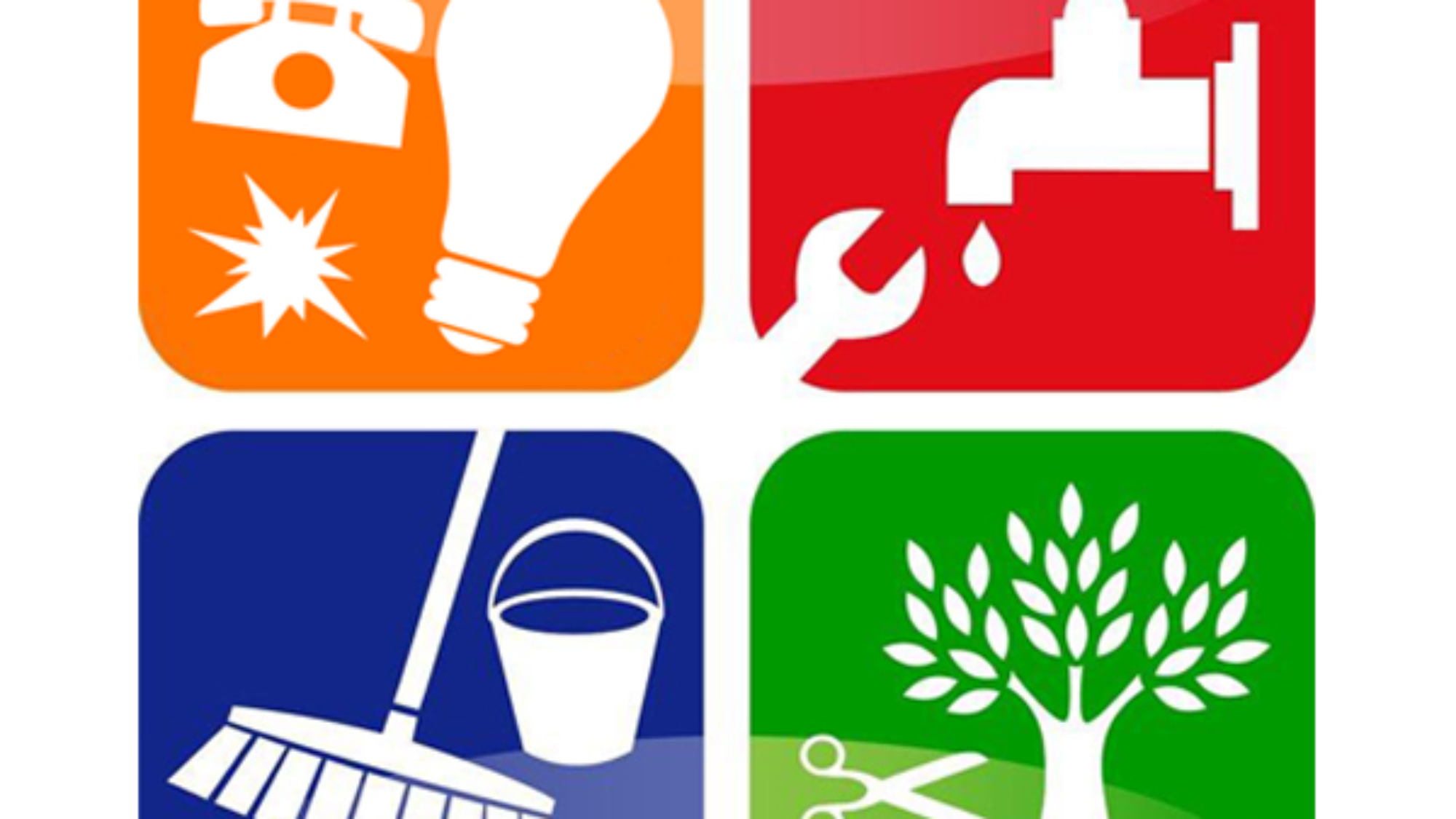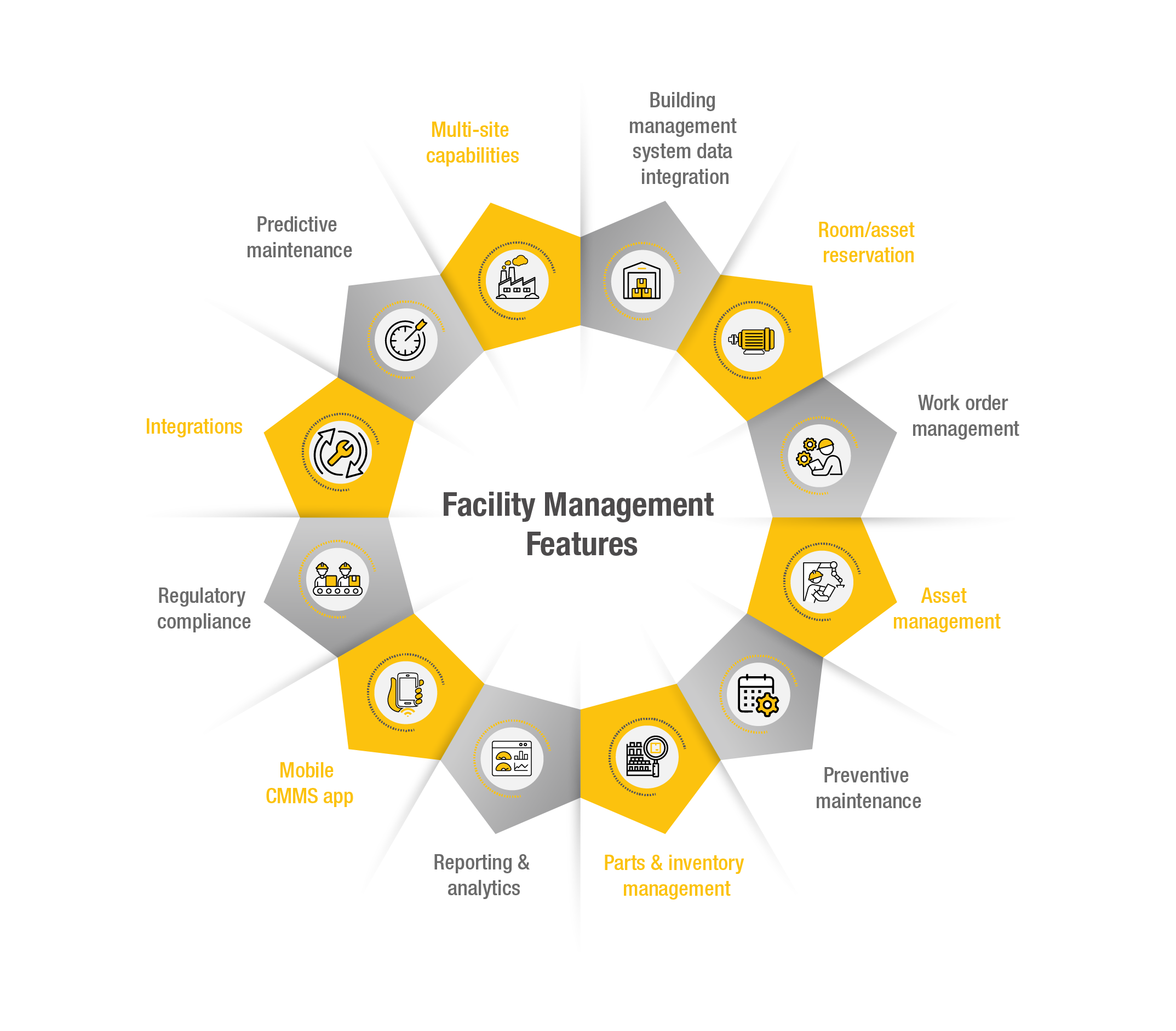Finest Practices in Facility Management for Modern Businesses
Finest Practices in Facility Management for Modern Businesses
Blog Article
Trick Patterns Shaping the Future of Center Management in 2024
As we look in advance to 2024, the landscape of facility management is positioned for significant makeover, driven by a number of key fads. The integration of clever building modern technologies and a shift in the direction of data-driven decision-making guarantee to boost operational performance while prioritizing sustainability in method. Furthermore, the appearance of hybrid job versions is reshaping workplace environments, requiring cutting-edge design options that accommodate progressing staff member requirements. Amid these modifications, the concentrate on occupant wellness remains to get grip, underscoring the significance of a healthy and balanced office. How these trends will show up in technique stays a critical question for market experts.
Smart Building Technologies

Smart building innovations include a vast range of systems, consisting of intelligent lights, a/c controls, and safety systems. By incorporating these systems, center supervisors can keep track of and readjust specifications in real-time, causing considerable decreases in power waste and functional expenses. As an example, smart sensing units can detect occupancy levels and adjust lights and temperature appropriately, making sure that energy is only used when required.
Furthermore, these innovations help with enhanced data collection, allowing companies to track use patterns and determine possibilities for more improvements. The implementation of wise building technologies not only adds to sustainability goals but also produces healthier work environments that can enhance staff member efficiency and fulfillment.
As we move into 2024, the adoption of wise building modern technologies will likely increase, mirroring a wider shift in the direction of even more smart, responsive, and lasting center administration techniques.
Data-Driven Choice Making
Progressively, organizations are leveraging data-driven choice making to improve facility monitoring techniques. By utilizing data analytics, center supervisors can derive workable understandings that substantially boost operational performance and source allowance. The integration of advanced technologies, such as IoT sensors and real-time tracking systems, enables the collection of substantial quantities of information on building efficiency, tenancy prices, and energy intake.
This wide range of information permits facility supervisors to identify trends, anticipate upkeep needs, and proactively address problems before they rise. For example, predictive analytics can forecast tools failings, lowering downtime and fixing costs. Furthermore, data visualization devices facilitate much better interaction among stakeholders, ensuring that educated choices are made collaboratively.
Additionally, data-driven methods boost calculated preparation by enabling center managers to assess the efficiency of existing practices and make informed selections pertaining to financial investments in technology or framework. As companies progressively focus on functional excellence, data-driven choice making is positioned to become a keystone of effective facility administration strategies in 2024 and past. Ultimately, the ability to leverage data efficiently will empower companies to develop extra reliable, efficient, and resistant facilities.
Sustainability and Green Practices
The emphasis on data-driven choice making normally aligns with the growing concentrate on sustainability and green techniques within center management. As companies progressively focus on ecological responsibility, center managers are leveraging analytics to optimize resource usage, lower waste, and decrease carbon impacts. This calculated technique makes it possible for the assimilation of energy-efficient systems, such as LED lighting, smart HVAC controls, and renewable resource resources right into facility procedures.
Additionally, the application of sustainable techniques prolongs beyond power usage. Center supervisors are embracing green products and promoting recycling efforts to develop a round economy within their facilities. This not just improves the ecological account of the organization but also cultivates a culture of sustainability amongst staff members.
Compliance with ecological laws is another important aspect driving the fostering of green techniques. By utilizing data analytics, center managers can check compliance metrics and recognize areas for enhancement, making certain adherence to worldwide and local sustainability standards.
Hybrid Work Models
A significant change in the direction of hybrid work models is improving the landscape of facility monitoring in 2024. This paradigm combines in-office and remote work, demanding a reevaluation of space application, source allocation, and worker interaction approaches. Organizations are increasingly acknowledging the value of versatile work areas that provide to diverse demands and preferences.
Facility managers have to adapt by executing functional workplace styles that sustain collaborative efforts while providing areas for focused work. This consists of the integration of technology to help with seamless communication and collaboration amongst remote and in-office staff members. Smart building solutions, geared up with sensing units and analytics, permit real-time surveillance of space use, allowing companies to enhance their atmospheres successfully.
In addition, hybrid work models highlight the need for efficient facility monitoring that focuses on employee experience. This incorporates not just innovation and area style yet additionally the development of plans that advertise more tips here a well balanced work-life dynamic. As companies navigate this shift, the duty of center management ends up being crucial in producing a nimble workplace that cultivates performance and drives business success. Essentially, the hybrid work design is transforming facility management, encouraging an aggressive strategy to satisfy the evolving needs of the labor force.
Boosted Resident Health
As companies accept hybrid job designs, an enhanced concentrate on resident wellness is becoming essential to center management techniques. Facility Management. This change identifies that a healthy and balanced and pleased labor force straight impacts performance and retention prices. Center supervisors are now prioritizing environments that promote psychological and physical wellness, integrating elements such as all-natural lights, biophilic design, and obtainable wellness sources

Innovation plays a vital duty in this advancement. Smart building systems can monitor environmental variables and readjust setups in real-time, making sure ideal convenience levels - Facility Management. Responses systems, such as tenancy sensors and worker studies, allow center managers to consistently improve wellness campaigns like it based on owner demands.

Verdict
In 2024, the future of facility monitoring will be substantially affected by the integration of wise structure modern technologies and data-driven decision-making, cultivating boosted operational efficiency. Sustainability efforts will certainly focus on environmentally friendly methods, while the appearance of hybrid work models will certainly require adaptable workplace layouts. An increased focus on resident wellness through advanced Heating and cooling systems and biophilic style will contribute to healthier job settings. These fads jointly emphasize the advancing landscape of center monitoring in action to modern difficulties and chances.
Facility managers are taking on green materials and promoting recycling campaigns to produce a round economic situation within their facilities.A substantial shift in the direction of hybrid job designs is reshaping the landscape of center management in 2024.In addition, hybrid job models stress the need for efficient facility administration that focuses on worker experience.As companies accept hybrid job models, an enhanced focus on passenger health is ending up being indispensable to facility monitoring strategies.In 2024, the future of facility monitoring will be substantially affected by the integration of wise structure technologies and data-driven decision-making, promoting boosted functional efficiency.
Report this page